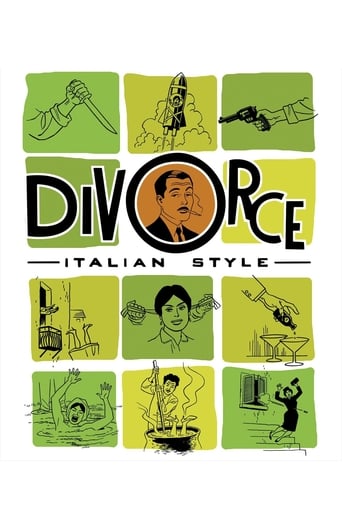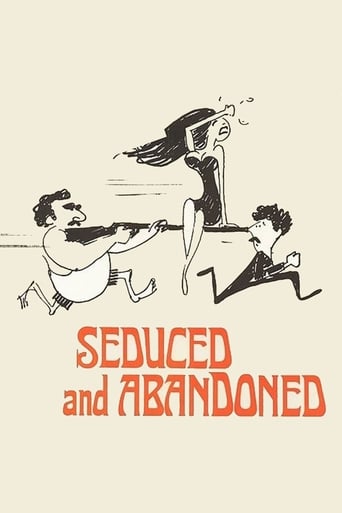


Seduced and Abandoned
The film presents the tale of Agnese Ascalone, daughter of prominent miner Vincenzo Ascalone, and takes place in a small town in Sicily. Agnese is seduced by her sister Matilde's fiance, and has a tryst with him for which she confesses and tries to repent, only to be discovered by her mother and father. The film is a dark satire of Sicilian social customs and honor laws, and is very similar to Divorce, Italian Style.
-
- Cast:
- Stefania Sandrelli , Saro Urzì , Aldo Puglisi , Lando Buzzanca , Lola Braccini , Leopoldo Trieste , Umberto Spadaro


Similar titles
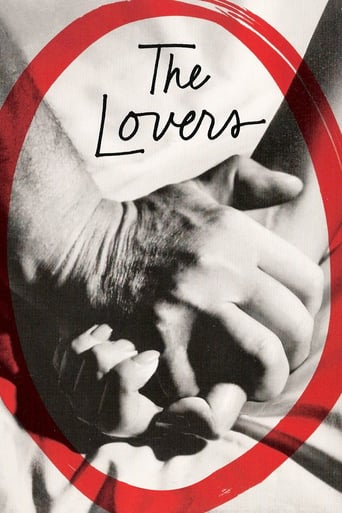


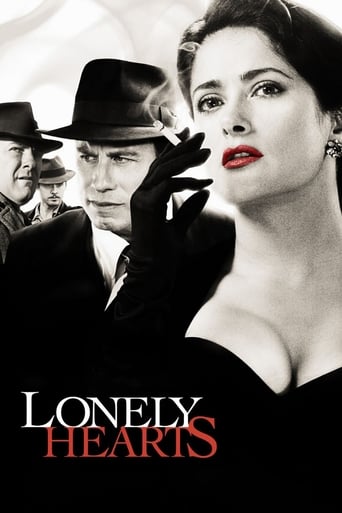

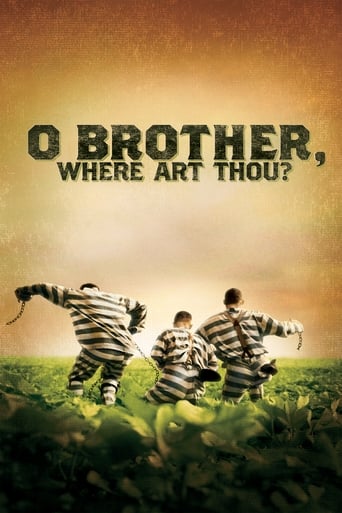
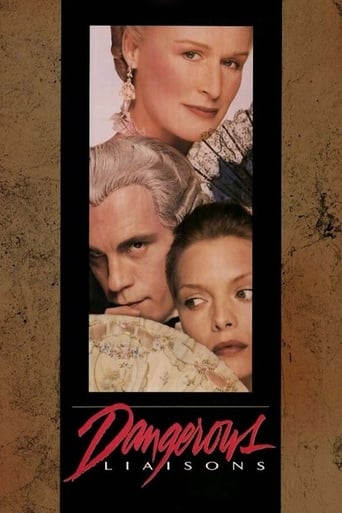


Reviews
Blistering performances.
It's the kind of movie you'll want to see a second time with someone who hasn't seen it yet, to remember what it was like to watch it for the first time.
There are moments that feel comical, some horrific, and some downright inspiring but the tonal shifts hardly matter as the end results come to a film that's perfect for this time.
This is one of the best movies I’ve seen in a very long time. You have to go and see this on the big screen.
Pietro Germi is probably my favorite director of commedia all'italiana films, but to understand him, we have to understand commedia all'italiana, and to do that, we have to examine its roots, which lie in the Italian neorealist movement.Italian neorealism was forged out of the ashes of World War II. After suffering Mussolini's dictatorship and Italian Fascism, followed by Nazi occupation, followed by American occupation, Italy's identity as a nation had been decimated. The new identity it would build in the postwar years would be defined in every way by the war. In cinema, directors began shooting low-budget, inexpensive films with a realistic aesthetic. This was, on one hand, a product of necessity, due to the economic impact of the war, and, on the other hand, it was an artistic choice, since the neorealists believed in a cinema that echoed reality, which meant natural lighting, nonprofessional actors, and on-location shooting. In terms of the films' content, they often featured a deep sympathy with the working class, which was the hallmark of the Marxist school of thought that was quickly beginning to dominate Italian cinema. Having recently seen the other end of the political spectrum (i.e. fascism) up close and personal, the shift leftward to communism was virtually inevitable. The other notable aspect of these neorealist films is their highly melancholic tone and grim portraits of human despair. This, too, of course, was a result of the horrors seen during the war.Time heals all wounds, however, and by the mid-'50s, Italians were ready to wake from their doldrums and shake off the depression that had marked the years immediately following the war. Italian cinema would have to adapt. For a nation that was finally ready to laugh again, the influx of comedy into Italian films was only natural. And so the '50s saw the rise of a very unique brand of comedy that would come to be called commedia all'italiana ("comedy Italian style", borrowing its name from Germi's own 1961 film, "Divorce Italian Style"). Italian cinema now had the money and the motivation to make more commercial, more traditionally entertaining films, and while the neorealist mode of filmmaking had largely vanished by the mid-'50s, it survived through commedia all'italiana, which can best be described as an amalgam of the social realism that dominated the neorealist movement and a more conventional comedy. Commedia all'italiana, in a way, can be seen as half comedy, half neorealism, and while infusing neorealism with comedy may not sound like a good mixture, this blend of styles actually created some of the most enjoyable films in Italian cinematic history.The directors who made films during the era of commedia all'italiana, for the most part, had apprenticed under the neorealists, and as a result much of the neorealist approach permeated their films. While the films they made were certainly comedies, they retained a poignancy, and an element of pathos, that was characteristic of Italian neorealism, and which transcended the conventions of comedic filmmaking. These filmmakers, like many of the neorealists before them, were largely communists, although it's been suggested that many only joined the party in an effort to further their careers.And this, at last, brings us to Germi. Unlike fellow commedia all'italiana filmmaker Mario Monicelli, who was a committed, lifelong communist, Germi considered himself a social democrat. In other words, he believed in social equality, as did the left, but refused to subscribe to any specific political ideology. Germi and Monicelli both delivered indictments of society in their films, but unlike Monicelli's films, which operate on a sympathy with the working class, Germi's films are an attack on traditional, conservative values in Italian culture, specifically in the south.While Monicelli's films tend to take place in Rome or northern cities like Turin, the films I've seen by Germi are set in Sicily, where conservative values regarding female chastity and familial honor were, certainly at the time of the film's release, at a maximum. Germi's films seem to revolve around individuals who are compelled toward unscrupulous choices and ultimately cast into a state of chaos by the rigid values of the society they live in. In "Divorce Italian Style", the protagonist lives in a Sicilian society that will not allow him to divorce (not without losing his honor and shaming himself as a cuckold), and so the only course of action left to him is to murder his wife (a comic premise, of course). In "Seduced and Abandoned", the patriarchal head of a family goes to absurd lengths to try to preserve his family's good name by covering up the corruption of his daughter's virtue at any and all costs. In both films, we have a scenario in which completely normal, or at least non-calamitous events (the failure of a marriage, consensual sex between a fairly young man and a girl on the verge of adulthood) are elevated to a state of complete catastrophe by what Germi sees as society's ridiculous values and mores. "Seduced and Abandoned" is a scathing assault on these kinds of social mores, and despite Germi's refusal to engage a specific political doctrine, it is very much a political film. What makes it so successful, like "Divorce Italian Style", is the way Germi is able to execute his films in such a way as to make them enjoyable on two levels: as a meaningful reflection on the flaws and shortcomings of Italian society, and as pure, lighthearted, comedic entertainment. As the viewer, we have the prerogative of choosing which level to absorb. I recommend both.RATING: 8.33 out of 10 stars
Agnese. No wonder the wedding ring would not go on her finger. Her fingers were swollen from enlarged tissues due to her pregnancy. Nowadays, Peppino could get her a stretch-band ring, albeit from the discount store, lol. Vincenzo. Reminds one of S. Berlusconi -- rotund, blow-hard, bragging, obnoxious, thinks he is handsome and charming. Baron. Goofy, bad hair and teeth, stupid, broke, bungles his own hanging several times. Matilde. Cutting off hair to marry Mother Church. Any normal mother would like their daughters to have nice hairstyles, but of course with Mother Church the hair 'i capelli' had to be hidden behind those heavy veils.Women in black. Mourning forever? Mourning that they had no rights nor respect? Vincenzo in white 'bianco', perfect for hot summer days, but mamas in 'nero' would surely swelter in the sun. Vincenzo swaggering and leader of the pack, while traditional women have to be victims, have no birth control, and spend their lives in those days washing clothes by hand outside and hanging them up on the line to dry. Women home-caretakers; men spewing out sex and violence and mafia-esque orders to kill enemies and those who mess with stupid oldtime dumb honor codes.Divorce I think became legal later in Italy than in the time frame of this film. Of course, Mother Church was not happy. Birth control may be readily available now there, too, so today's Agneses would not have to be bothered by 'getting knocked up' especially by someone else's main squeeze. Mother Church always wanted more parishioners, for moolah to be put into those coffers. Birth control cuts the number of churchgoers way down.Did the nuns sell Matilde's hair for more cash to put in those coffers?
Criterion Collection was generous enough to introduce me to Germi's works, first starting with Divorce, Italian Style. It was only natural that I followed up with Seduced and Abandoned, since I was blown away by Divorced, and had a newfound love of contemporary European cinema, especially from French and Italian filmmakers. I know it's relatively simple to find out about little gems of work from foreign directors (using IMDb, for example), but I'm grateful for a company like Criterion to steer me in the direction of fantastic films and the visionaries that create them. Saves me a lot of time and effort, haha.Now, I'm just some random nobody in his early 20's, born and raised on the prairie of Western Canada. In a sense, I may not be as "culturally perceptive" as someone hailing from a direct Old-World European background. But to discover a film such as Seduced and Abandoned, it was a guaranteed shock to see the enormity of differences between the values, traditions, and customs of Sicily compared to what I grew up in, astonishing since these worlds are separated only by a couple generations! Then again, forced marriage might be as frowned upon nowadays as if someone from that era might look into the future and see the overwhelming divorce rate of ours! It's really a subjectivity of time, where a brilliant, neorealist director, not unlike Germi, of our time will be able to capture a kind of absurdity in the way we deal with (or possibly lack thereof) now common principles and practices, such as infidelity, polygamy, same-sex unions, etc.I'm rambling. Seduced was a depressingly good movie. Sardonic and whimsical at the same time, this one had the ability to leave a bittersweet taste with me afterward, to not dismiss the ideals held in Sicilian culture a couple generations ago, but to ponder them, to compare them to the beliefs and mores of our generation.Sandrelli was phenomenal, as always. And I'm glad Germi cast Saro Urzi as the father instead of some North American counterpart, like Borgnine... Added to a certain authenticity that I wouldn't find if that'd been the case.Lando Buzzanca as Antonio, and Leopoldo Triste as the Baron were amazing as the kind of actors that kept the comedic ball rolling in this type of film; although Seduced is known as a key player in the Comedia d'all Italiano, without these laugh-out-loud performances, the film would be a depressing portrayal of old Italian values and nothing but.I look forward to the day when a company like Criterion will release more of Pietro Germi's film works (undoubtedly his 1950's dramatic working class oeuvre), to an international audience...Until then.
It is so rare to watch a funny masterpiece with so many insights! Sicily in the 50's appears obsessed with a twisted concept of honor, or, better, of an impeccable APPARENT reputation. No other movie I have seen is able to give such a vivid idea of the double morality for men and women that ails the "cultura machista". The character I love most in the movie is the extremely naive sister of the protagonist, who lives in her romantic world and does not realize what kind of tragicomic events are happening around her. In a word, truly a masterpiece.


